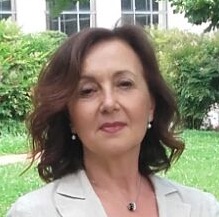Studying at the University of Verona
Here you can find information on the organisational aspects of the Programme, lecture timetables, learning activities and useful contact details for your time at the University, from enrolment to graduation.
Academic calendar
The academic calendar shows the deadlines and scheduled events that are relevant to students, teaching and technical-administrative staff of the University. Public holidays and University closures are also indicated. The academic year normally begins on 1 October each year and ends on 30 September of the following year.
Course calendar
The Academic Calendar sets out the degree programme lecture and exam timetables, as well as the relevant university closure dates..
| Period | From | To |
|---|---|---|
| Sem. 1A | Sep 23, 2019 | Oct 31, 2019 |
| Sem. 1B | Nov 11, 2019 | Jan 11, 2020 |
| Sem. 2A | Feb 17, 2020 | Mar 28, 2020 |
| Sem. 2B | Apr 6, 2020 | May 30, 2020 |
| Session | From | To |
|---|---|---|
| Sessione d'esame invernale | Jan 13, 2020 | Feb 15, 2020 |
| Sessione d'esame estiva | Jun 3, 2020 | Jul 25, 2020 |
| Sessione d'esame autunnale | Aug 24, 2020 | Sep 19, 2020 |
| Session | From | To |
|---|---|---|
| Sessione di laurea estiva | Jul 6, 2020 | Jul 11, 2020 |
| Sessione di laurea autunnale | Nov 2, 2020 | Nov 6, 2020 |
| Sessione di laurea invernale | Apr 7, 2021 | Apr 13, 2021 |
| Period | From | To |
|---|---|---|
| Festa di Ognissanti | Nov 1, 2019 | Nov 1, 2019 |
| Chiusura Ateneo | Nov 2, 2019 | Nov 2, 2019 |
| Festa dell'Immacolata | Dec 8, 2019 | Dec 8, 2019 |
| Vacanze di Natale | Dec 23, 2019 | Jan 6, 2020 |
| Vacanze di Pasqua | Apr 10, 2020 | Apr 14, 2020 |
| Festa della liberazione | Apr 25, 2020 | Apr 25, 2020 |
| Festa del lavoro | May 1, 2020 | May 1, 2020 |
| Sospensione delle lezioni | May 2, 2020 | May 2, 2020 |
| Festa del Santo Patrono | May 21, 2020 | May 21, 2020 |
| Sospensione delle lezioni | May 22, 2020 | May 23, 2020 |
| Festa della Repubblica | Jun 2, 2020 | Jun 2, 2020 |
| Vacanze estive | Aug 10, 2020 | Aug 15, 2020 |
Exam calendar
Exam dates and rounds are managed by the relevant Humanistic Studies Teaching and Student Services Unit.
To view all the exam sessions available, please use the Exam dashboard on ESSE3.
If you forgot your login details or have problems logging in, please contact the relevant IT HelpDesk, or check the login details recovery web page.
Should you have any doubts or questions, please check the Enrollment FAQs
Academic staff
 cristina.bertazzoni@univr.it
cristina.bertazzoni@univr.it
 gregoirebernardjohan.cousin@univr.it
gregoirebernardjohan.cousin@univr.it
 stefania.pontrandolfo@univr.it
stefania.pontrandolfo@univr.it
 marco.ubbiali@univr.it
marco.ubbiali@univr.it
Study Plan
The Study Plan includes all modules, teaching and learning activities that each student will need to undertake during their time at the University.
Please select your Study Plan based on your enrollment year.
1° Year
| Modules | Credits | TAF | SSD |
|---|
2° Year activated in the A.Y. 2020/2021
| Modules | Credits | TAF | SSD |
|---|
Indirect internship for educational consulting
| Modules | Credits | TAF | SSD |
|---|
| Modules | Credits | TAF | SSD |
|---|
Indirect internship for educational consulting
| Modules | Credits | TAF | SSD |
|---|
Legend | Type of training activity (TTA)
TAF (Type of Educational Activity) All courses and activities are classified into different types of educational activities, indicated by a letter.
Pedagogical Design and Evaluation (2019/2020)
Teaching code
4S008174
Academic staff
Coordinator
Credits
9
Language
Italian
Scientific Disciplinary Sector (SSD)
M-PED/03 - METHODOLOGIES OF TEACHING AND SPECIAL EDUCATION
Period
Sem. 1A, Sem. 1B
Learning outcomes
Knowledge and understanding 1. Know and understand the fields of pedagogist's professional activity and the services, organizations and institutions in which this professional figure operates. 2. Know and understand the function and methods of observation in the pedagogical field. 3. Know and understand the theoretical foundations and the design methods of planning and pedagogical evaluation in medium complexity contexts 4. Know and understand methodologies and tools to access EU funding. Applying knowledge and understanding 1. Know how to use specific observation methods in relation to the different contexts in which the pedagogical coordinator and the pedagogical consultant are involved and the various professional activities (planning and evaluation). 2. Designing the detection of needs in different educational contexts, through the use of methodological tools suitable for the purpose (questionnaire, interview, focus group). 3. Analyze design documents and evaluation reports of educational services and / or projects in order to understand the context in which it operates. 4. Design and manage educational interventions of medium complexity.
Program
THEMES AND CONTENTS
The profile of the educator and the educator in light of the recent law governing the professions (areas of intervention and specialization, activities and competences)
The "second level" educational work in the functions of coordination, training, supervision, consulting and research
Reflexivity as a defining trait of expert professionalism
The function and methods of observation in the pedagogical field
Theories and models of planning and evaluation in the socio-educational field
Design and intervention logics
The phases of the construction of a medium complexity educational project: from the analysis of needs to the evaluation
Methodological aspects for the analysis and drafting of project documents and evaluation reports in the educational field
European projects: methodological indications for design
Methods and tools
The teaching approach is aimed at fostering learning from experience that involves the active participation of female students and students and personal reflection on the learning process. Particular emphasis will be given to teamwork and the creation of work groups.
• Interactive theoretical lessons
• Analysis of stimulus materials (films, articles, etc.)
• Testimonials from expert educators
• Reflective writings
• Role play
• Cooperative Learning
• Project Work
• Use of e-learning platform
Examination Methods
BIBLIOGRAPHY
For those attending the bibliography will be defined during the first lessons, then materials and bibliographic and site information will be made available on the e-learning platform
Non-attending students will have to demonstrate that they have a thorough knowledge of the following texts and that they are able to apply the knowledge learned.
1. Leone L., Prezza M., Building and evaluating social projects, Franco Angeli, Milan, 2014
2. Mortari L., Learning from experience, Carocci, Rome, 2004
3. one to choose from the following (list in progress)
Lichene C. (a cura di), Progettare e realizzare percorsi 0-6. Riflessioni ed esperienze, Zeroseiup Edizioni, Bergamo, 2019
Iori V. (a cura di), Educatori e Pedagogisti. Senso dell’agire educativo e riconoscimento professionale, Erickson, Trento, 2018
Bondioli A., Savio D., Educare l'infanzia. Temi chiave per i servizi 0-6, Carocci, Roma, 2018
Fontaine A.M., L'osservazione al nido. Guida per educatori e professionisti della prima infanzia, Erickson, Trento, 2017
Oggionni F., La supervisione pedagogica, Franco Angeli, 2013
Contini M. G., Dis-alleanze nei contesti educativi, Carocci, Roma, 2012
Musi E., Invisibili sapienze. Pratiche di cura al nido, Edizioni Junior, Bergamo, 2011
Simone D., La consulenza educativa. Dimensione pedagogica della relazione d’aiuto, Vita e Pensiero, Milano, 2011
Catarsi E. (a cura di), Coordinamento pedagogico e servizi per l’infanzia, Edizioni Junior, Bergamo, 2010
Premoli S. (a cura di), Il coordinamento pedagogico nei servizi socioeducativi, Franco Angeli, Milano, 2008
Kaneklin C., Orsenigo A. (a cura di), Il lavoro di comunità. Modalità di intervento con adolescenti in difficoltà, Carocci, Roma, 2003
Bondioli A. (a cura di), Il progetto pedagogico del nido e la sua valutazione, Edizioni Junior, Bergamo, 2002
Regoliosi L., Scaratti G., Il consulente del lavoro educativo. Formazione, supervisione, coordinamento, CarocciFaber, Roma, 2002
MODALITA' D'ESAME
For attending students
Diversified individual tests are foreseen (autobiographical writing, reflective reports on formative experiences carried out in the classroom, etc.)
Intermediate verification tests (closed question test)
Drafting of a medium-complexity educational project developed in a group (Projet Work)
For non-attending students:
The exam includes the production of two written papers and an oral interview, namely:
a) A written paper which consists in the conception of an educational project of medium complexity starting from the knowledge learned from the study of the text in the exam program: Leone L., Prezza M., Building and evaluating social projects, FrancoAngeli, Milan, 2014;
b) A written report (max 3000 words) on the chosen text highlighting the methodological and operational aspects of the pedagogist's work (coordination, consultancy, etc.);
c) An oral discussion of critical discussion on the contents of the exam texts and on the educational project presented. The questions will be descriptive (to verify the learning of the contents), of the argumentative type (to verify the capacity of autonomous re-elaboration and autonomous reflection) and of an applicative type (to verify the ability to apply theoretical knowledge to concrete and operational contexts )
NB: More specific indications are provided in the document "Guide to the drafting of the examination papers"
Teaching materials e documents
-
 RISULTATI I MODULO
(pdf, it, 32 KB, 29/11/19)
RISULTATI I MODULO
(pdf, it, 32 KB, 29/11/19)
Type D and Type F activities
Modules not yet included
Career prospects
Module/Programme news
News for students
There you will find information, resources and services useful during your time at the University (Student’s exam record, your study plan on ESSE3, Distance Learning courses, university email account, office forms, administrative procedures, etc.). You can log into MyUnivr with your GIA login details: only in this way will you be able to receive notification of all the notices from your teachers and your secretariat via email and soon also via the Univr app.
Student mentoring
Graduation
Documents
| Title | Info File |
|---|---|
|
|
pdf, it, 99 KB, 13/10/23 |
|
|
pdf, it, 101 KB, 10/04/24 |
List of theses and work experience proposals
| theses proposals | Research area |
|---|---|
| Psicoanalisi | Psychology - Psychology, Psychoanalysis |
Gestione carriere
Linguistic training CLA
Practical information for students
Documents
| Title | Info File |
|---|---|
|
|
pdf, it, 325 KB, 02/05/23 |
|
|
pdf, it, 212 KB, 02/05/23 |
|
|
pdf, it, 131 KB, 02/05/23 |
Stage e Tirocini
Per le altre attività formative (crediti F) sono previsti 9 cfu (pari a 225 ore) da acquisire solamente attraverso l’attività di tirocinio obbligatoria, a sua volta suddivisa in:
- tirocinio indiretto (1 cfu: 25 ore di frequenza obbligatoria in università per il 75%) in preparazione dell’attività formativa sul campo;
- tirocinio diretto (8 cfu), da svolgersi presso enti convenzionati.
L’ordinamento didattico della LM in Scienze pedagogiche prevede che il tirocinio indiretto a frequenza obbligatoria si svolga in università per il 75% nel secondo anno (1 CFU: 25 ore).
Il tirocinio indiretto consiste in un accompagnamento iniziale delle/degli studenti da parte dei tutor attraverso un percorso di formazione della durata di 25 ore.
La finalità di questo percorso è quella di preparare le/gli studenti alla particolare forma di apprendimento costituita dal tirocinio, dotandoli di conoscenze e strumenti adeguati a osservare, comprendere e rielaborare criticamente l’esperienza di tirocinio nei servizi educativi e ad affrontare il tirocinio negli enti con metodo e consapevolezza.
Il percorso, da attuare in gruppi da 20-25 persone sotto la supervisione di un tutor proveniente dal mondo professionale di educatori e pedagogisti, risponde alle esigenze costantemente espresse sia dalle/dagli studenti stessi sia dalle parti sociali che dai referenti degli enti convenzionati.
Nuove Linee Guida per il tirocinio di Scienze pedagogiche.
- Tutte le informazioni in merito agli stage per futuri studenti sono disponibili alla pagina Stage e tirocini.
- Tutte le informazioni in merito agli stage per studenti iscritti sono pubblicate in MyUnivr - come fare per - stage e tirocini.
- Tutte le informazioni in merito agli stage per le aziende sono disponili alla pagina Stage e tirocini per azienze.


 +390458028159
+390458028159















